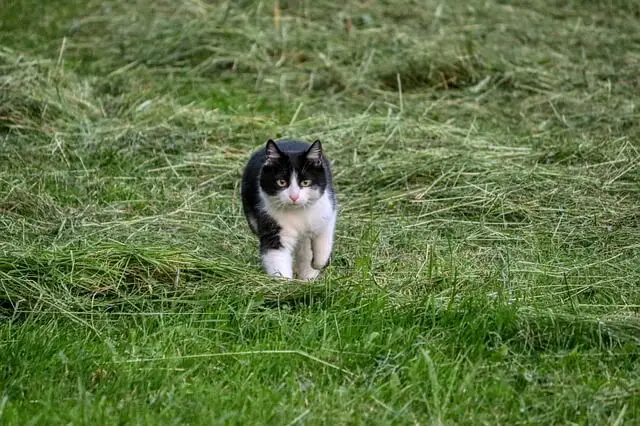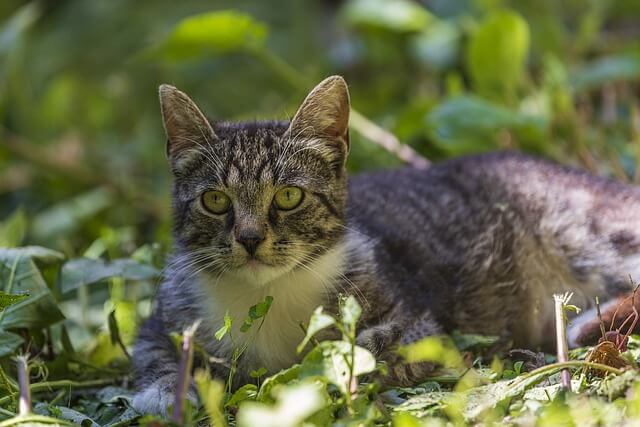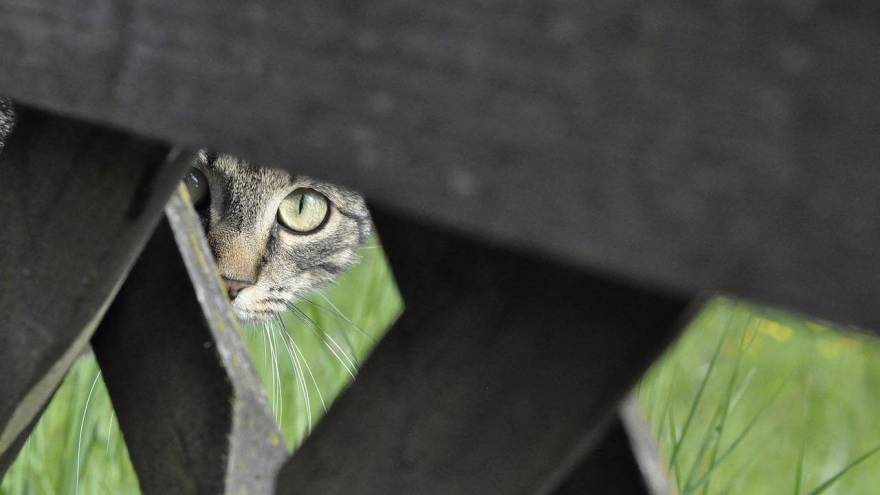Cat Repellents: How To Keep Cats Away From Restricted Areas
19.04.2022.
Unwanted cats in your yard can become a problem. Feline aggression is a real possibility while dealing with feral cats. Natural predators like cats can wreak havoc in your backyard by killing birds and squirrels that you might love to see in your yard.
Outdoor cats may potentially defecate in your yard or dig up your lawn. Feral cats can carry parasites like mange or scabies, which can infect you and your family through cat excrement. Luckily, cat repellants can help us deal with these issues. Here's what you should know about them.
Keeping cats out of your yard
If you don't want to deal with feral cats, you should think about some simple techniques to keep them away from your property. These solutions are humane because you should never harm or kill nuisance cats.
RELATED: 5 Tips On How To Bathe A Cat Safely
Obstacles
Cats defecate in areas that are easy to dig, such as soft garden soil. Cats may be deterred from entering these areas with sharp mulch, prickly rubber mats, and chicken wire.

Sprinklers
Sprays of water from the sprinklers startle and aggravate the cat. In order to discourage cats from returning, you should prepare to spray them a couple of times.
Scent repellants
Many popular household scents, such as citrus and coffee, are repulsive to cats. You can use citrus peels, coffee grounds, eucalyptus, or cayenne pepper along your fence or garden's perimeter to deter unwanted visitors.
Ultrasonic repellant
Ultrasonic alarms are activated when the device registers a cat moving close by. Cats are not harmed by this sound; on the contrary, it startles them and causes them to flee. The sound is undetectable by humans, so you won't have to worry about it bothering you.

Source problems
If none of these work for you, you might have to dig in a bit deeper, and look at the main reasons cats are interested in your property. Those might include;
RELATED: Indoor Vs. Outdoor Cats: Which is Better?
Crawl space
A stray cat may find shelter in a crawl space or under the floorboards. You can use chicken wire or physical barriers to prevent entry points for the cats. Keep an eye out for any cats or kittens that might get trapped if you can locate their entry point.
Open trash cans
Make sure to remember that feral cats are always hunting for food. Cats hate the sound of metal trash cans that have heavy metal lids, so they won't try to jump on them. Another possible reason is that other pests like possums or rats may be attracted to trash cans that are slightly open and aren't adequately secured.

RELATED: How Often Should I Take My Cat to the Vet?
Cat-proof fence
You should consider installing a cat-proof fence if that doesn't work. This is one of the most expensive cat deterrents, but it works. Feral cats can't get in, and pet cats can't get out. The cat can't get past the net at the top.
Some cities have volunteers that catch, and spay and neuter feral cats as part of a trap-neuter-release program. You should check if that program is available near you. There are fewer cats in your yard when there are fewer feral kittens in your neighborhood.
You can aid your community's trap-neuter-release program in a few easy ways:
Traps
Captured cats should be taken to a clinic and then somewhere where they recover following their surgery. Volunteers in the transportation sector are scarce, so you can join the program in your city, if it is available, of course.
- After their surgery, cats should be kept isolated somewhere safe, like a quiet room. Volunteers are needed to care for cats as they recuperate in clinics.
- Share information about the initiative with your friends, family, coworkers, and neighborhoods where stray cats are common.
- Help your local clinic earn money, track animals, and respond to phone calls and emails by becoming a volunteer.
How to choose a cat repellant?
Find out what attracts them. Unwanted felines may seek refuge in or beneath your house. Some wish to use your yard as a toilet. For others, it's all about finding food. Cats are obviously drawn to your home, and if you can, figure out what is attracting them, and you will be closer to a solution.

RELATED: How Long Do Cats Live? Can I Prolong My Cat's Life?
Some people may require more than one repellant. Cats are clever creatures. They're creative and can come up with new ways to get into your yard. You might have to try a different cat repellant if the first one doesn't work. Also, some cat repellants might work for some cats, while others don't seem bothered by it.
The most important thing is to choose a deterrent that is humane. We don't want you to harm any animals. Ensure that any repellant you use won't be poisonous to cats. A humane method of reducing the feral cat population is to spay or neuter the cats and then release them.
Things to consider
There are several types of cat repellants, and you shouldn't buy the first one you come across. Here are the most important things you should consider when getting a cat repellant;
Location
If you're looking for a cat repellant, consider whether you need one for indoors or outdoors or if you want something that can be used in both places. You could need a power outlet nearby for some gadgets, and others might only be suitable for indoor use.
RELATED: How Old Is My Cat? Here’s How To Determine A Cat’s Age
Coverage
It depends on whether you're attempting to prevent feral cats from your yard or keep your clever feline off the dining table. Cat repellents can range in size from those designed to cover a few square feet to those capable of protecting areas as large as 5,000 square feet.
Specific behavior
To prevent your cat from engaging in a particular activity, such as clawing your furniture or nibbling on your houseplants, you should consider investing in a repellant specifically designed for your needs. For example, you can use adhesive sheets on furniture or sprays to protect your plants.
World Cat Finder Team







Share